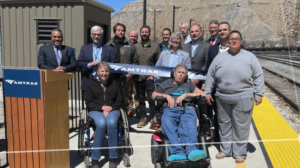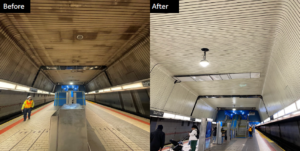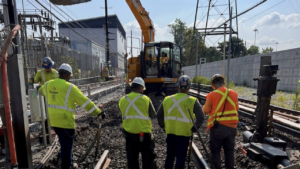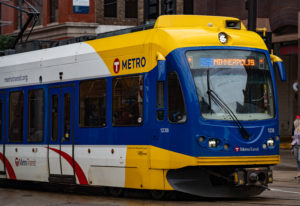Secretary LaHood highlights expanded TIFIA program
Written by Jenifer Nunez, assistant editor
U.S. Transportation Secretary Ray LaHood said that up to $17 billion in loans for critical infrastructure projects across the country would be available as a result of the recently enacted surface transportation bill.
Secretary LaHood encouraged states and cities across the country to submit letters of interest for the Transportation Infrastructure Finance and Innovation Act (TIFIA) program, which provides direct loans, loan guarantees and standby lines of credit to major infrastructure projects with the potential to create jobs and spur economic development and growth.
The recently enacted surface transportation bill, known as MAP-21, provided $1.7 billion in capital over two years for the TIFIA credit assistance program, up from $120 million in FY2012, making it the largest transportation infrastructure finance fund in the department’s history. Each dollar of federal funds can provide approximately $10 in TIFIA credit assistance, meaning $17 billion in loans through TIFIA, which in turn can leverage $20-$30 billion in transportation infrastructure investment. Altogether, the expanded federal loan program could result in up to $50 billion in federal, state, local and private sector investment for critical transportation projects across the country.
A wide range of critical transportation projects are eligible for the funding, including everything from highway and passenger rail projects to public transit and international bridges and tunnels. Because of the flexibility provided by the TIFIA programs, many qualified, large-scale projects that might otherwise be delayed or shelved can move forward quickly, providing an immediate boost to jobs while laying a foundation for continued economic growth.
To date, the TIFIA program has used $9.2 billion in funding to leverage more than $36.4 billion in private and other capital to help build 27 major transportation projects around the country.





